-
10
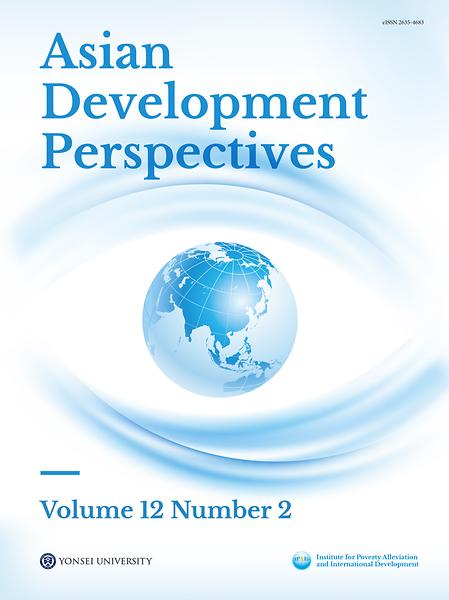
- No.2 / (5) Demand for Micro Health Insurance in Rural Cambodia
- Title_ Demand for Micro Health Insurance in Rural Cambodia Author_ Kaoru Ishiguro Pages_ 152-163 Abstract_ This paper examines the demand for micro health insurance in rural Cambodia in terms of the willingness to purchase health insurance and pay premiums. Data from interviews with 270 households in six villages in Siem Reap, Cambodia in September 2017 is analyzed using logit regression. It finds that the factors determining the willingness to purchase micro health insurance are different from those determining the willingness to pay premiums. Also, socioeconomicattributes, including household income, poverty identification, and education, each influence the willingness to purchase health insurance and the willingness to pay premiums differently. Finally, health or medical conditions in households, including number of illnesses or injuries, payment method for medical expenses, and use of medical institutions, affects the willingness to purchase health insurance and premiums. Keywords_ Micro health insurance, Willingness to purchase health insurance, Willingness to pay premiums, Rural Cambodia
- IPAID 2022.01.27
-
9
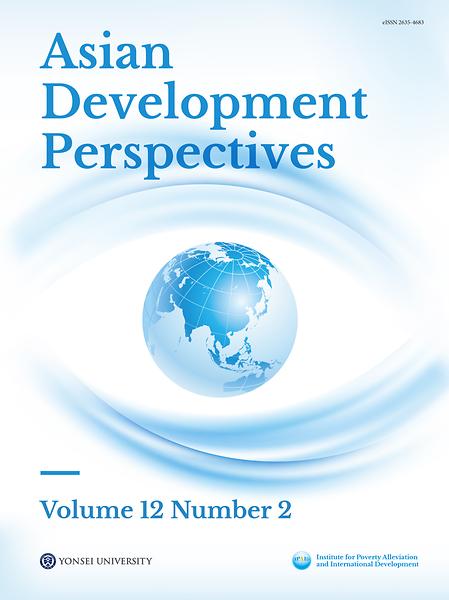
- No.2 / (4) Child Endowment and Resource Allocation among Siblings in Indonesia: Do Poor and Prosperous Parents Have the
- Title_ Participation of Marginalized Households in Shrimp Value Chains in Southern Coastal Bangladesh Author_ Sulistiadi Dono Iskandar Pages_ 132-151 Abstract_ How the ability of children determines the allocation of investment between siblings has raised the interest of many in development economics. However, attention has not been paid to the possibility of distinct behavior between poor and non-poor parents. Using Raven’s colored progressive matrices (CPM) as a direct measurement of child cognitive abilities, we examine differences in educational investment decisions between poor and non-poor parents in Indonesia. Our results suggest that poor parents tend to reduce the gap between their children, with having a smarter sibling being associated with the increase in the likelihood of being enrolled by around 3.2-3.5% for a poor child. On the other hand, non-poor parents tend to reinforce the gap that exists between their children. We also find that non-poor parents tend to discriminate between their non-biological children, in which their schooling outcome is conditional on their ability; while for biological children, the schooling outcome seems to be independent of their ability. Keywords_ Education, Sibling rivalry, Cognitive ability, Parental investment, Indonesia
- IPAID 2022.01.27
-
8
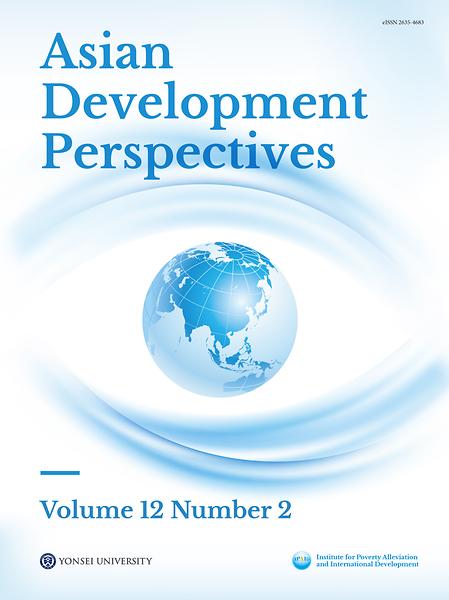
- No.2 / (3) Tariff Volatility and Tariff Policy in Developed and Developing Countries
- Title_ Tariff Volatility and Tariff Policy in Developed and Developing Countries Author_ Sena Kimm Gnangnon Pages_ 101-131 Abstract_ We investigate at the aggregate level the effect of tariff volatility on tariff rates for three groups of products (manufactured, primary and all), making use of a large panel dataset covering 163 countries over the period 1995-2017. Feasible generalized least squares estimator results for the full sample show that countries that experience greater tariff volatility also tend to have greater tariff liberalization. This finding holds for each of the three groups of products, as well as for three sub-samples: lower-middle income, upper-middle income and high-income countries. However, for low-income countries, tariff volatility influences significantly (though negatively) tariff rates only for primary products. Additionally, for recipients of Aid for Trade related to trade policy and regulation, the effect of tariff volatility on tariff rates is conditional upon the size of flows only for primary products. Particularly, there exists a substitutability between tariff volatility and such aid flows in influencing tariffs applied on primary products. For lower levels of such flows, tariff volatility induces greater tariff liberalization. On the other hand, for higher amounts of these aid flows, tariff volatility results in higher tariff rates. In other words, the higher such aid flows, the greater the positive effect of tariff volatility on the extent of liberalization of tariffs on primary products. These findings have some policy implications. Keywords_ Tariff, Tariff volatility, Primary products, Manufactured products
- IPAID 2022.01.27
-
7
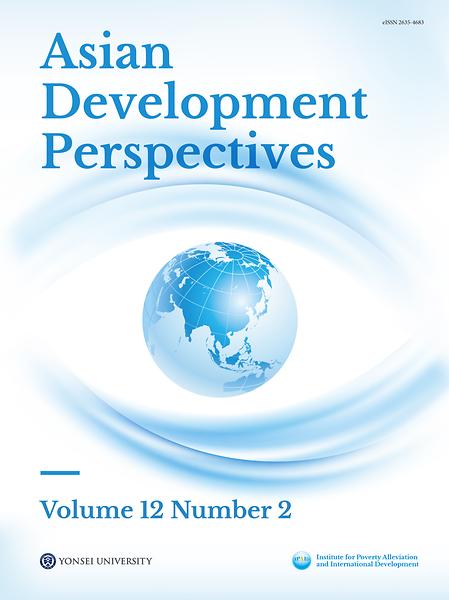
- No.2 / (2) Participation of Marginalized Households in Shrimp Value Chains in Southern Coastal Bangladesh
- Title_ Participation of Marginalized Households in Shrimp Value Chains in Southern Coastal Bangladesh Author_ Md. Mojammel Haque, M. Serajul Islam, Mohammad Ismail Hossain, Md. Wakilur Rahman Pages_ 85-100 Abstract_ The shrimp export industry contributes significantly to Bangladesh’s economy, and is having a positive impact on the livelihoods of many. However, in contrast to small-holder farmers, the role of the shrimp industry in reducing poverty among the most marginalized households, who lack land or access to other resources, has been disappointing. In order to better understand why, the present study was designed to determine the roles of marginalized households in the shrimp value chains of coastal Bangladesh. Both quantitative and qualitative data were collected through field surveys, focus groups and in-depth interviews in the Khulna, Bagerhat and Satkhira districts. We find that about 46% of marginalized households are engaged in shrimp value chains and added some value in each node for an average of seven months a year. Their roles were wild shrimp fry catching and trading, shrimp PL (postlarvae) collection and trading, PL numerating, PL growing-out, shrimp trading, deheading, cleaning, icing and preserving. As laborers, the role of marginalized household members in the governance structure of the value chain was insignificant, and they have limited bargaining power. Nevertheless, they contribution added value at each node of the value chain, and their labor contribution was indispensable to the functioning of the chains. Keywords_ Participation, role, marginalized households, shrimp value chain, Bangladesh
- IPAID 2022.01.27
-
6
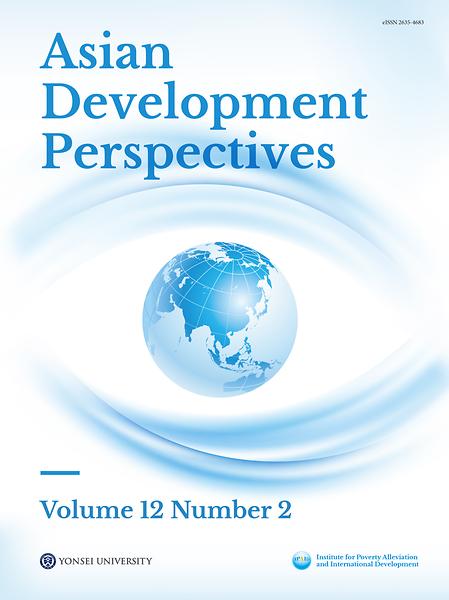
- No.2 / (1) The Relationship Between Energy Consumption and Economic Growth in Myanmar
- Title_ The Relationship Between Energy Consumption and Economic Growth in Myanmar Author_ Byoungki Kim, Phouphet Kyophilavong, Teerawat Charoenrat, Jeong-Soo Oh Pages_ 75-84 Abstract_ Myanmar has experienced rapid growth in its economy and fossil energy consumption. The objective of this study is to examine a connection between energy use and growth in Myanmar, employing the Johansen cointegration approach and the Toda and Yamamoto Granger causality test to investigate a long-run causal relationship. The results show unidirectional causality running from economic growth toward energy consumption in the long run. Accordingly, it will be increasingly important for Myanmar to promote fuel efficiency and energy conservation measures. Enhancement of energy efficiency will improve the productivity of energy use while also stimulating industrial performance. Keywords_ Myanmar, energy consumption, economic growth, Granger causality
- IPAID 2022.01.27
-
5
- No.1 / (5) Sustainability in the Fast Moving Consumer Goods Sector in Lagos, Nigeria
- Title_ Sustainability in the Fast Moving Consumer Goods Sector in Lagos, Nigeria Author_ Oluwasinaayomi Faith Kasim, Olayide Josiah Omirin, Olusegun Fanegan and Olaitan Olutayo Odunola Pages_ 61-74 Abstract_ The Fast-Moving Consumer Goods (FMCG) sector is particularly important in terms of sustainability, with considerable impacts on the economy, society and environment. To date, little research has been carried out on the operational frameworks in the FMCG sector in developing countries related to inclusive sustainability. This study contributes to understanding of the FMCG sector in a developing country context, examining the sustainability framework adopted by the FMCG businesses in Lagos, Nigeria. Seventy-five FMCG businesses were surveyed and analyzed. The study finds that overall, companies focus more on the economic aspects of sustainability than environmental and social sustainability. This appears to be due to competitive and commercial pressures within the sector, as well as the lack of incentives and sustainable infrastructure provided by the government. Keywords_ Fast moving consumer goods, Sustainability framework, Corporate social responsibility, Greenwashing, Infrastructural development, Lagos
- IPAID 2021.06.23
-
4
- No.1 / (4) Productive Impacts of Cash Transfer and Conditional Cash Transfer Programs in Bangladesh
- Title_ Productive Impacts of Cash Transfer and Conditional Cash Transfer Programs in Bangladesh Author_ Ismat Ara Begum, Mohammad Jahangir Alam, Shaheen Akter, Md. Mojammel Haque and Noor Md. Rahmatullah Pages_ 46-60 Abstract_ This study estimates the productive impacts of four important social safety net programs in Bangladesh. Two are cash transfer programs called old age allowance (OAA) and allowances for the widowed, deserted, and destitute (AWDD) providing cash income support to targeted beneficiaries. The other two are conditional cash transfer (CCT) programs called stipend for primary education (SPE) and stipend for secondary and higher secondary education for female students (SSHE) providing cash support by imposing conditionalities and hence are CCT programs. We measure productive impacts on the beneficiary households using labor allocation, income generating activities, investments in land, durable goods, human capital and coping mechanisms as indicators. We use the HIES 2010 data and the propensity score matching method to estimate impacts. The beneficiaries under OAA, AWDD, SPE and SSHE numbered 485, 203, 444 and 176, respectively. Results show that both conditional and unconditional cash transfer programs had moderate productive impacts, but the impacts were statistically significant only in the case of CCT programs. The average treatment effect on treated (ATT) in SPE was significant for self-employed in off-farm activities, expenditure on durable goods, total credit and non-food expenditure. ATT in SSHE was significant for self-employed in farm activities, income from crop production, income from livestock production, spending on fertilizer use, total credit and education expenditure. This indicates that the SPE and the SSHE contribute to some productive outcome indicators. Policy makers should design programs taking account of not only the goal of protection but also to the impact on productive capacity. Keywords_ Cash transfer, Conditional cash transfer, Safety net, Productive impact, PSM, Bangladesh
- IPAID 2021.06.23
-
3
- No.1 / (3) Local Government Public Accountability in Ghana: A Case Study of Selected Metropolitan, Municipal and Distr
- Title_ Local Government Public Accountability in Ghana: A Case Study of Selected Metropolitan, Municipal and District Assemblies Author_ Martin Kudwo Akotey and Kwabena Boateng Pages_ 32-45 Abstract_ This study examined the accountability of selected District Assembly executives to the Assembly members and local stakeholders. A total of 39 participants across three district assemblies were interviewed, including assembly members, presiding members, MMDCEs and other senior officials. We found major accountability gaps within all the three assemblies. We observed low citizen participation, lack of financial accountability and transparency in procurement and general non-compliance with the provisions for accountable local governance. These gaps were due to capacity deficiencies of the local legislators, appointment of MMDCEs by the country’s president, and the inability of the assemblies to recruit executive personnel. Our recommendations include District Assemblies having control over MMDCE personnel hiring and firing decisions so that they are more accountable to local stakeholders. Keywords_ Local government, Accountability, Metropolitan Municipal and district, Decentralization, Ghana
- IPAID 2021.06.23
-
2
- No.1 / (2) Impact of a Multi-Sectoral Intervention Program on the Dietary Diversity of Smallholder Farmers in Uganda
- Title_ Impact of a Multi-Sectoral Intervention Program on the Dietary Diversity of Smallholder Farmers in Uganda Author_ Bernard Bashaasha, Patrick Webb, Shibani Ghosh, Nassul Kabunga, Edgar Agaba and Dennis Tiishekwa Pages_ 22-31 Abstract_ Nutritional deficiencies are a major contributor to lost productivity, impaired physical and mental development, susceptibility to various diseases, and premature deaths. Increasing dietary diversity is therefore an important strategy to improve development outcomes. This study investigates the impact of the Uganda Community Connector Project (UCCP) integrated nutrition, water-sanitation-hygiene (WaSH), rural credit and agriculture program on the dietary quality of smallholder farm households in Uganda. We use a longitudinal panel data set, generated using a cross-sectional Randomized Control Trial (RCT) study design that was implemented in six randomly selected districts in southwestern and northern Uganda to estimate a panel ordered logistic regression model, using demographic, socioeconomic, cultural and geographical factors as covariates, and dietary diversity score as a proxy measure of nutrition security. Households located in the UCCP sub-county showed a significant increased probability of attaining a more diverse diet. Location and key socio-demographic factors including livestock ownership were found to positively and significantly influence the dietary diversity of the household. Meanwhile, frequency of pregnancies of the caregiver negatively and significantly influenced diet diversity. The findings suggest that an integrated multi-sectoral approach to nutrition improvement (via diet quality) can be effective, particularly where pre-program socio-demographic, cultural and agro-climatic factors predispose successful outcomes. Beyond technical program interventions, an effective policy mix is also critical for successful improvement of dietary diversity of smallholder farmers. Keywords_ Dietary diversity, Nutrition, Agriculture, Water-sanitation-hygiene, Uganda, Panel ordered logistic regression
- IPAID 2021.06.23
-
1
- No.1 / (1) Development Aid and Fiscal Redistribution
- Title_ Development Aid and Fiscal Redistribution Author_ Sena Kimm Gnangnon Pages_ 1-21 Abstract_ This article investigates empirically the effect of development aid on the extent of fiscal redistribution, using a sample of 103 countries over the period 1962-2016. The empirical exercise shows that development aid exerts a positive effect on the extent of fiscal redistribution, particularly in less advanced countries. In relatively more advanced aid recipient economies, its impact is statistically nil. This positive effect of development aid on the extent of fiscal redistribution takes place through the income inequality channel, notably when income inequality exceeds a certain level. Finally, development aid reduces fiscal redistribution when its exceeds a certain amount. These findings show that a scaling-up of development aid could help reduce income inequality. This highlights the need for redistributing income through transfers and taxes. These outcomes are particularly relevant in the present context of the COVID-19 pandemic, which will likely worsen income inequality in developing countries. Keywords_ Development aid, Fiscal redistribution, Income inequality
- IPAID 2021.06.23
